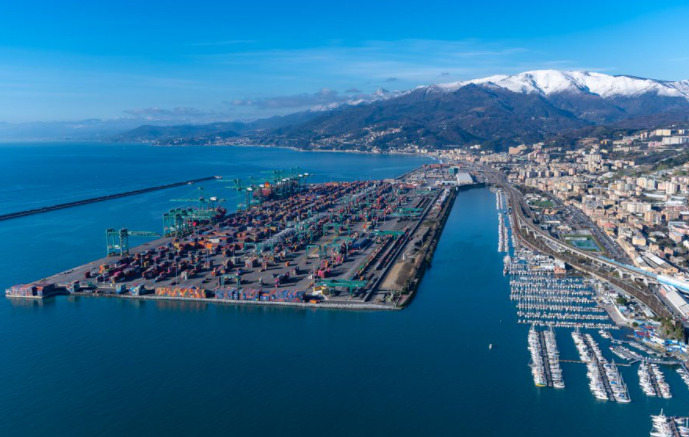Emission taxation will destroy trade passing through European ports. Someone had said it, unheard…

The entry into force of the extension of the ETS Mechanism (Emissions Tax System) to the shipping sector is raising concerns among European ports, with particular attention to Italian ports, already affected by the effects of this initiative.
The European Commission directive, approved last May, provides for the taxation of ships' emissions, also including the miles traveled since the last port of call in the calculation.
The taxation of emissions varies based on the type of route: 100% if the route is intra-European, 50% if it involves non-EU ports as a starting point or destination. This legislation could have significant consequences on transshipment activities, with the risk of negatively impacting European ports.
“Transhipment” is the practice whereby a container is unloaded in one port and reloaded onto another ship for another port. With the new regulations, the container is subjected to emissions taxation both for the non-European arrival route and for the internal one. All this intermediate traffic is therefore heavily penalized and substantially destroyed from an economic point of view.
However, the directive provides for a mitigation by excluding from the definition of "ports" non-EU transshipment ports that are within a certain distance from European coasts. This means that the taxation applies only on the route started in the previous non-EU port of call.
However, the Association of European Port Authorities (Espo) considers this solution to be only partial. Espo acknowledges the identification of some nearby transshipment ports, but stresses that this measure may not be sufficient to prevent evasion. Many port authorities in Europe are increasing transshipment capacity, which could put EU ports at a disadvantage. Furthermore, the 50% taxation for routes to and from non-EU ports favors the latter compared to ports such as Gioia Tauro or Marsaxlokk, where 100% taxation applies.
Another undesirable consequence concerns triangulation airports, such as Trieste. If a shipowner chooses to pay only 50% of the tax by forgoing an intermediate stop, it could increase the overall emissions of the trip.
Espo underlines the importance of carefully monitoring the implementation of the Maritime ETS Mechanism to protect the competitiveness of European ports and prevent the relocation of emissions and activities to non-EU ports. Monitoring should begin before the application date and should be continuous, not limited to reports every two years. The association looks forward to an open and constructive dialogue with the European Commission to address these issues and ensure that the ETS Mechanism achieves the objectives for which it was created.
Campomenosi had highlighted the unheard problem
Yet some had pointed out that the maritime emissions tax system as applied would be a major problem that would harm European ports. The ID group, in the person of Marco Campomenosi, member of the TRAN commission, had written numerous amendments to correct this obvious distortion, but ideological reasons had blocked the discussion. It was the time when Greta Thunberg was seen as an envoy of providence. Now our ports will pay for the lack of foresight of certain politicians.

Thanks to our Telegram channel you can stay updated on the publication of new Economic Scenarios articles.
The article Emission taxation will destroy trade passing through European ports. Someone had said it, unheard… it comes from Scenari Economici .
This is a machine translation of a post published on Scenari Economici at the URL https://scenarieconomici.it/la-tassazioni-delle-emissione-distruggera-il-commercio-in-transito-nei-porti-europeo-qualcuno-lo-aveva-detto-inascoltato/ on Thu, 21 Sep 2023 19:51:38 +0000.
